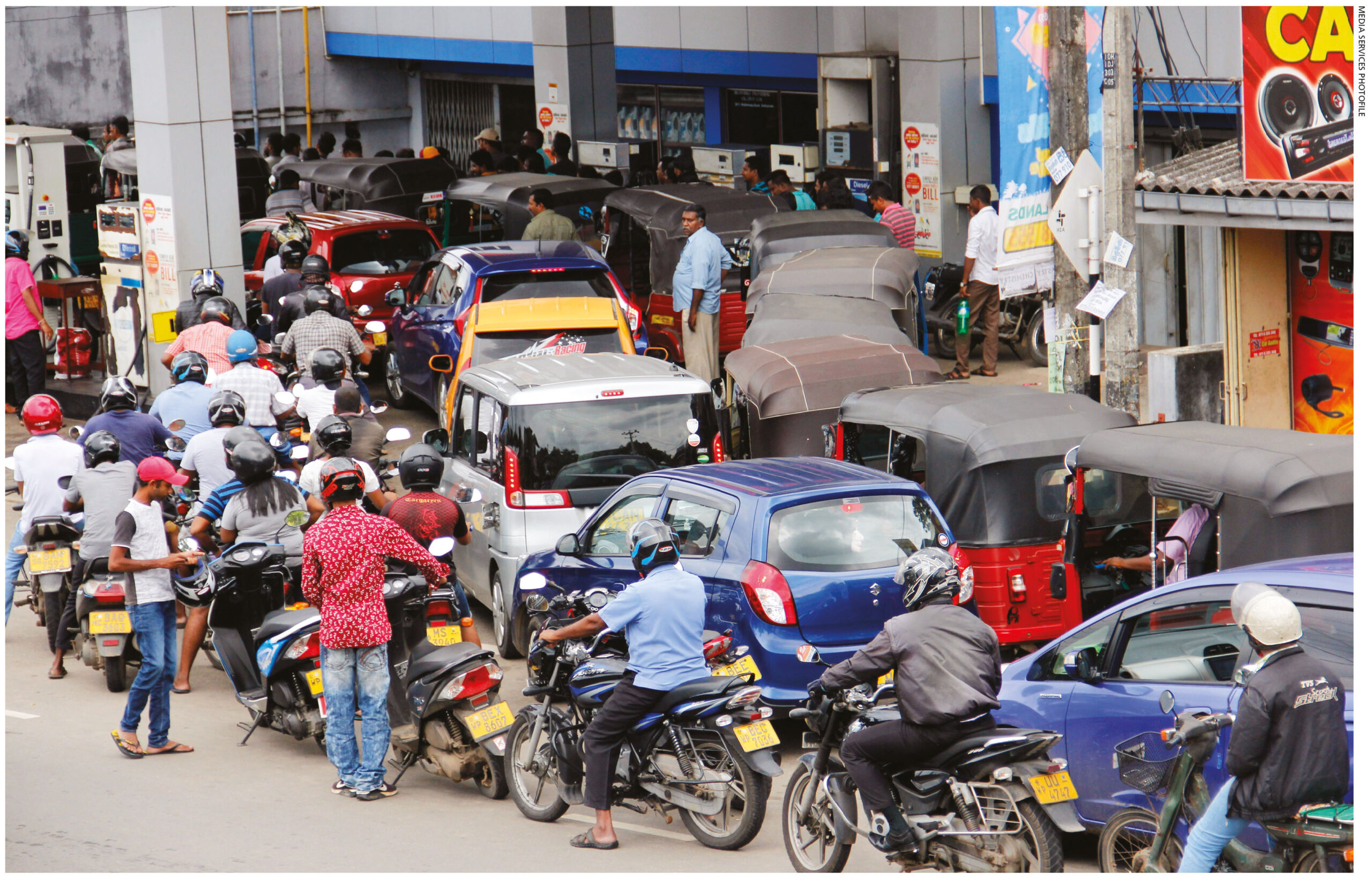Sri Lanka’s new prime minister says the country is down to its last day of petrol as it faces its worst economic crisis in more than 70 years.
In a televised address, Ranil Wickremesinghe said the nation urgently needs $75m (£60.8m) of foreign currency in the next few days to pay for essential imports.
He said the central bank would have to print money to pay government wages.
Mr Wickremesinghe also said state-owned Sri Lankan Airlines may be privatised.
The island nation’s economy has been hit hard by the pandemic, rising energy prices, and populist tax cuts. A chronic shortage of foreign currency and soaring inflation had led to a severe shortage of medicines, fuel and other essentials.
Ravindu Perera, who lives in the capital Colombo, said he and his family had begun searching for fuel before daybreak on Monday.
“We went to several fuel stations and most of them were closed. At around 5.30am we took a chance and joined a queue at Townhall which is the station usually providing fuel for government vehicles,” he told the BBC.
“It was less crowded – but the queue gradually grew to about 2km long. We were lucky enough to get fuel around 9.00am once fuel was delivered.”
He said his friends outside the capital were having to wait even longer. “I’m working from home now to try and save fuel because who knows when I’ll get a full tank again.”
Auto rickshaws, the most popular means of transport in Colombo, and other vehicles have been queuing at petrol stations around the capital.
“At the moment, we only have petrol stocks for a single day. The next couple of months will be the most difficult ones of our lives,” said Mr Wickremesinghe in Monday’s address.
However, shipments of petrol and diesel using a credit line with India could provide fuel supplies in the next few days, he added.
Mr Wickremesinghe, who was appointed prime minister last Thursday, said the country’s central bank would have to print money to help meet the government’s wage bill and other commitments.
“Against my own wishes, I am compelled to permit printing money in order to pay state-sector employees and to pay for essential goods and services. However, we must remember that printing money leads to the depreciation of the rupee,” he said.
He also proposed selling off Sri Lankan Airlines as part of efforts to stabilise the nation’s finances. The carrier lost 45 billion Sri Lankan rupees ($129.5m; £105m) in the year ending March 2021.
In recent weeks, there have been large, sometimes violent, protests against President Gotabaya Rajapaksa and his family.
Last week, the president’s elder brother Mahinda resigned as prime minister after government supporters clashed with protesters. Nine people died and more than 300 were wounded in the violence.
On Friday, Mr Wickremesinghe told the BBC, that the economic crisis is “going to get worse before it gets better”.
In his first interview since taking office, he also pledged to ensure families would get three meals a day.
Appealing to the world for more financial help, he said “there won’t be a hunger crisis, we will find food”.


